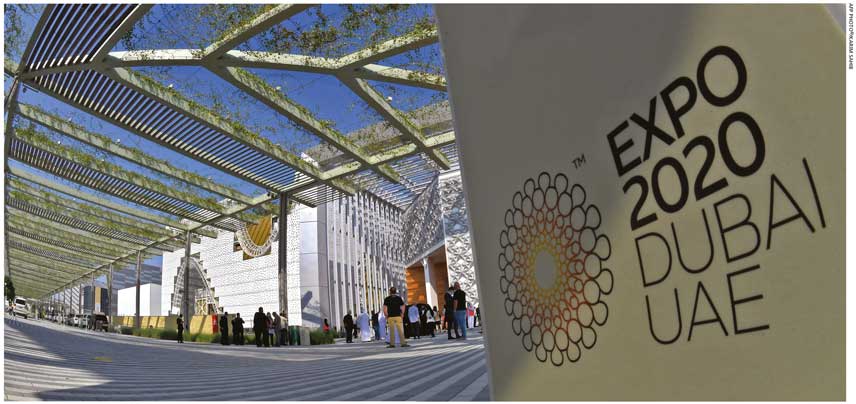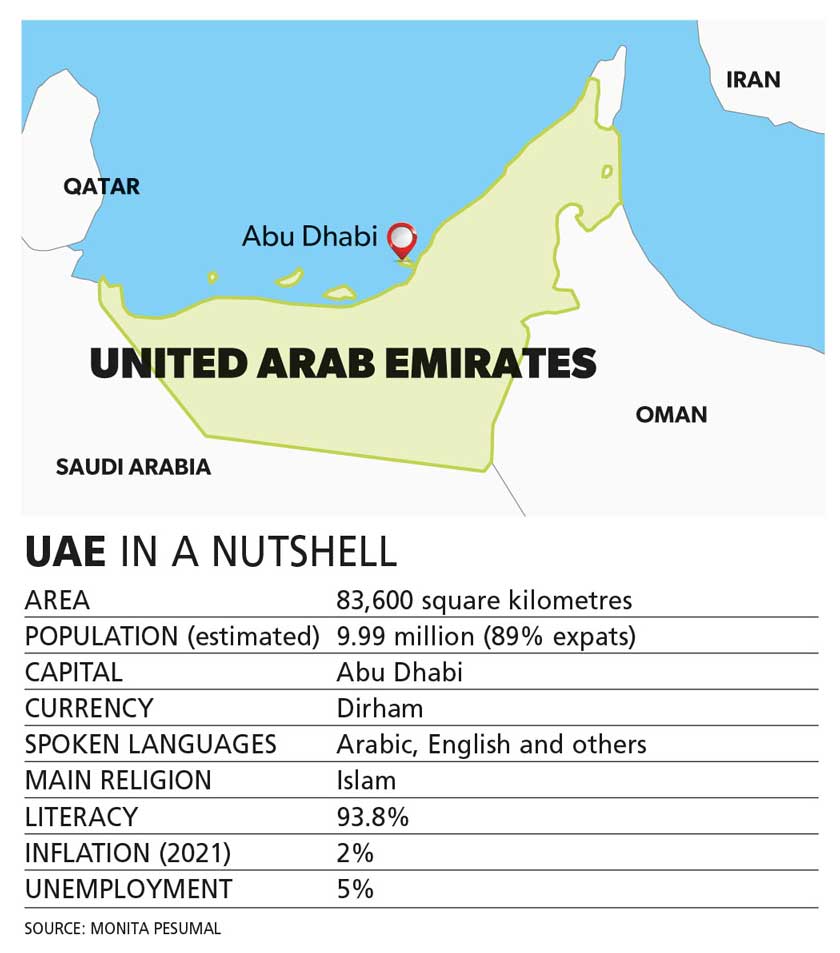THE UAE TODAY
POSTER CHILD FOR SUPERLATIVES
Monita Pesumal fleshes out a long litany of the firsts that the United Arab Emirates boasts today

If all the nations on Planet Earth had to compete in a marathon annually, the highest tally of medals would probably be awarded to the United Arab Emirates hands down. In order to validate this extraordinary claim, let’s first look at the construction and real estate fronts in the UAE.
The UAE is home to the world’s tallest and arguably most talked about tower – the Burj Khalifa. No prizes for guessing that one, right? The Dubai Frame is also said to be the world’s largest such architectural landmark.
It may come as a surprise however, that the United Arab Emirates boasts the fourth highest number of skyscrapers anywhere in the world – after Hong Kong, China and New York City.
In the transport arena, the longest driverless railway operation of its type is the Dubai Metro Red Line that’s a little over 52 kilometres in length. And the award-winning airline Emirates is the international arena’s best in its class for business travellers.
On the hospitality front, Dubai’s Gevora Hotel is the world’s tallest posh hostelry. That emirate also boasts the highest restaurant – Atmosphere, which is located atop the Burj Khalifa.
And the United Arab Emirates is home to other obscure records too – such as possessing the planet’s largest infinity pool; the globe’s highest suspended hotel suite (in Abu Dhabi); and once upon a time, the world’s highest tennis court.
 Tourists flock to take ‘Instagram-worthy’ photos of a blooming green haven in the middle of a desert – with an estimated 60 million flowers on display at the Dubai Miracle Garden. This horticultural marvel occupies over 72,000 square metres of space and holds the record for being the world’s largest natural flower garden.
Tourists flock to take ‘Instagram-worthy’ photos of a blooming green haven in the middle of a desert – with an estimated 60 million flowers on display at the Dubai Miracle Garden. This horticultural marvel occupies over 72,000 square metres of space and holds the record for being the world’s largest natural flower garden.
Other bizarre items – such as being home to the globe’s largest chocolate sculpture, rug, gold chain, book and puzzle – deserve honourable mentions, at the very least!
So what do people in the UAE do other than break records?
The United Arab Emirates is the fourth largest economy in the Middle Eastern region. Though the country has developed a strong services sector as a result of diversification during the last few decades, the oil industry continues to be a vital player in terms of stature and prosperity.
Abu Dhabi produces some 95 percent of the nation’s oil and gas, and owns one of the largest sovereign wealth funds in the world. The UAE’s economy is expected to record a 4.2 percent economic growth this year due to a strong rebound in the price of oil while its non-oil sector’s real gross domestic product (GDP) will grow by 3.9 percent, according to the Quarterly Economic Review of the Emirates’ Central Bank.
The World Bank notes in its latest report that the United Arab Emirates will benefit from higher oil prices and a strong rebound in the non-oil sector. In addition to higher oil prices, non-oil sectors such as travel and tourism, real estate, hospitality, aviation and manufacturing performed better last year – especially since the launch of Expo 2020 Dubai, which was a major driving force for the country’s economic growth in the last quarter of 2021.
Expo 2020 Dubai – which is a global extravaganza linking innovation, technology, art and culture – will continue to function throughout March. Experts have projected that direct revenues from this World Expo will easily reach US$ 16 billion; and by the end of 2031, the ‘expo effect’ is expected to contribute a whopping 33 billion dollars to the UAE’s economy.
In return for the billions of dirhams spent on this keynote event, policy makers expect a long-term economic legacy. Expo’s capital expenditure has already spurred wider economic impetus in key sectors including construction, infrastructure development and international transport, and storage and communications, as well as travel, tourism, hospitality and business services.
In other news, a recent survey revealed that people feel safer while walking at night in the United Arab Emirates than anywhere else in the world. According to Gallup’s Global Law and Order 2021 Report, the Emirates scored 95 percent when it came to feeling safe while walking alone at night. Norway took second place.
Last year, the United Arab Emirates was also rated as the second safest country in the world, according to a report compiled by the Global Finance magazine. The index took account of three fundamental factors – war, personal security and risk of natural disasters, and included exposure factors stemming from the pandemic.
The UAE’s high ranking can be attributed to its robust healthcare sector and vaccination drive. It is now among the world’s most vaccinated nations with 99 percent of eligible residents fully inoculated against COVID-19.
Another milestone for the United Arab Emirates is its ability to generate artificial rain in the desert through a process known as ‘cloud seeding.’ Cloud seeding aircraft have been integral to the Emirates’ drive to boost rainfall in its arid desert climate.
The UAE is indeed the world’s poster child for superlatives.




